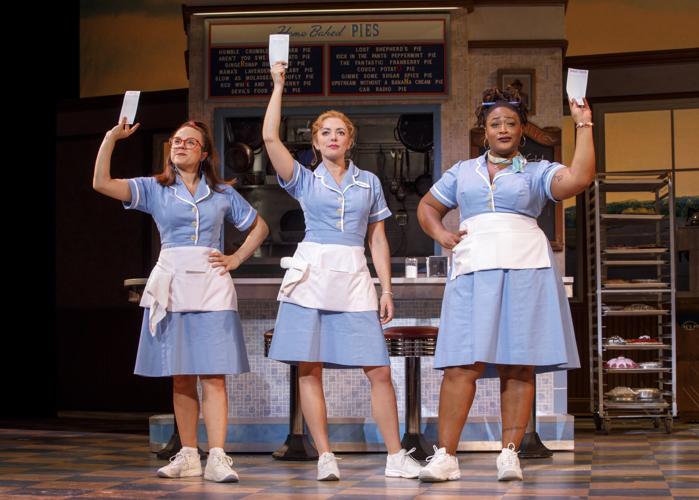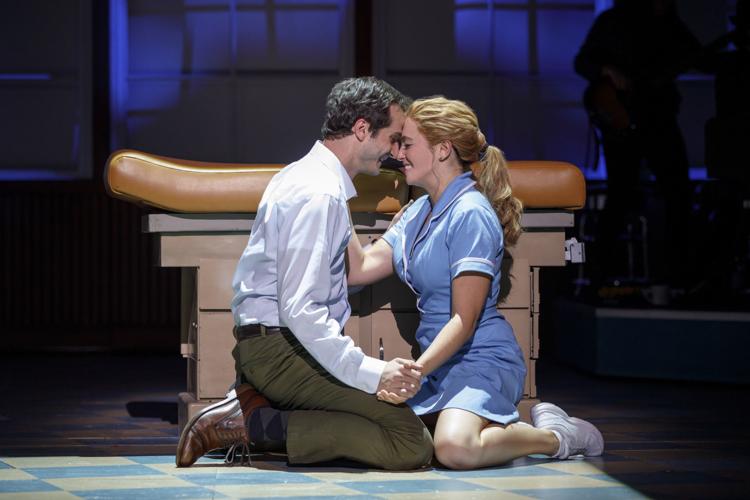Sara Bareilles is experiencing a “pinch me moment” times a million these days.
“Waitress,” her first-ever shot at composing for theater, has turned into stage gold, with four Tony Award nominations the year it opened on Broadway in 2016.
It’s still running on Broadway and on many nights, tickets are hard to come by.
“My hopes and dreams were all wrapped up into having one good, sort of fatted-calf year where we’re not crawling across the finish line,” she said during a phone call last week from New York, where she and her teenaged half-sister were shopping for prom dresses. “One year where we have a really solid show and the audience to come and see it.”
Well, one year is now three and the show is on the road including a stop next week in Tucson and next year in London.
“It is beyond my wildest imagination. I am so immensely grateful to the fans and the supporters of the show who have really embraced us and made us their own,” Bareilles said. “It is just incredible.”
So how does a pop singer-songwriter (“Love Song,” “Brave,” “Gravity”) make that giant leap from deeply personal 3½-minute radio-friendly songs to composing the soundtrack for a 2½-hour stage show?
Look outward.
“I think the biggest difference for me was having to write from a perspective that wasn’t just telling my own story,” she explained. “It was about finding my way into the mindset and the psychology of other characters.”
The process: “I am really used to, as a songwriter, writing from the first-person perspective and in how it relates to my ideas of the world. I had to practice what I refer to as ‘radical empathy’ and find my way into some of these other characters’ life experiences and imagining what they might be feeling. The biggest challenge was the characters that kind of lived further away from myself. I found my way into the character Jenna (the lead waitress) probably the most easily. But the abusive husband was a challenge, and the crotchety old man was a challenge. But I found over the course of writing for the show, I found a lot of love and caring for each of the characters. It was a really interesting experiment.”
The freedom to create: “I really got so much beautiful freedom from my creative partners. It really was about a gut instinct and an initial reaction to the feeling and the tone of what music would serve which character. It evolved over time. I think certain characters sort of had their own personalities that came out in the music. For example, Ogie, who has a song called ‘Never Getting Rid of Me,’ it’s probably the most comic sounding song in the show and that’s because he is our most obvious comic relief in the show.”
Defining each character’s musical soul: “Each character had these bold, broad strokes that kind of wanted to live in the music. So Becky, who’s this soulful, sassy waitress who’s kind of been around the block, I wanted to give her something that she could kind of sink her teeth into that had a lot of attitude. So it ended up being kind of a bluesy, rock song for her because it felt like it had a lot of power in a certain way. Jenna, her songs kind of lived in a place that felt soulful but also sort of pensive and introspective and I tried to give her musical themes that showed that she had this vivid imagination that was also constrained and protected in certain ways.”
Back to her music: Bareilles released the first single, the feminist homage “Armor,” off an album she will release early next year. She recorded it last summer in Los Angeles with legendary producer T Bone Burnett. “It’s been a minute — it’s been a long minute,” she said of the five years since she released her last studio album. Of course, those five years were spent working on “Waitress.” The record, whose title is still a work in progress, is a hodgepodge of styles deeply influenced by her experience on “Waitress” and working with Burnett, the award-winning producer, whose work with movie soundtracks (“O Brother, Where Art Thou?” “Cold Mountain,” “Walk the Line,” “Crazy Heart” and “Raising Sand”), earned him seven of his 16 Grammys. “I think what he brought more than anything — because I think the album ends up sounding more eclectic — he really values performance over perfection,” she said.






